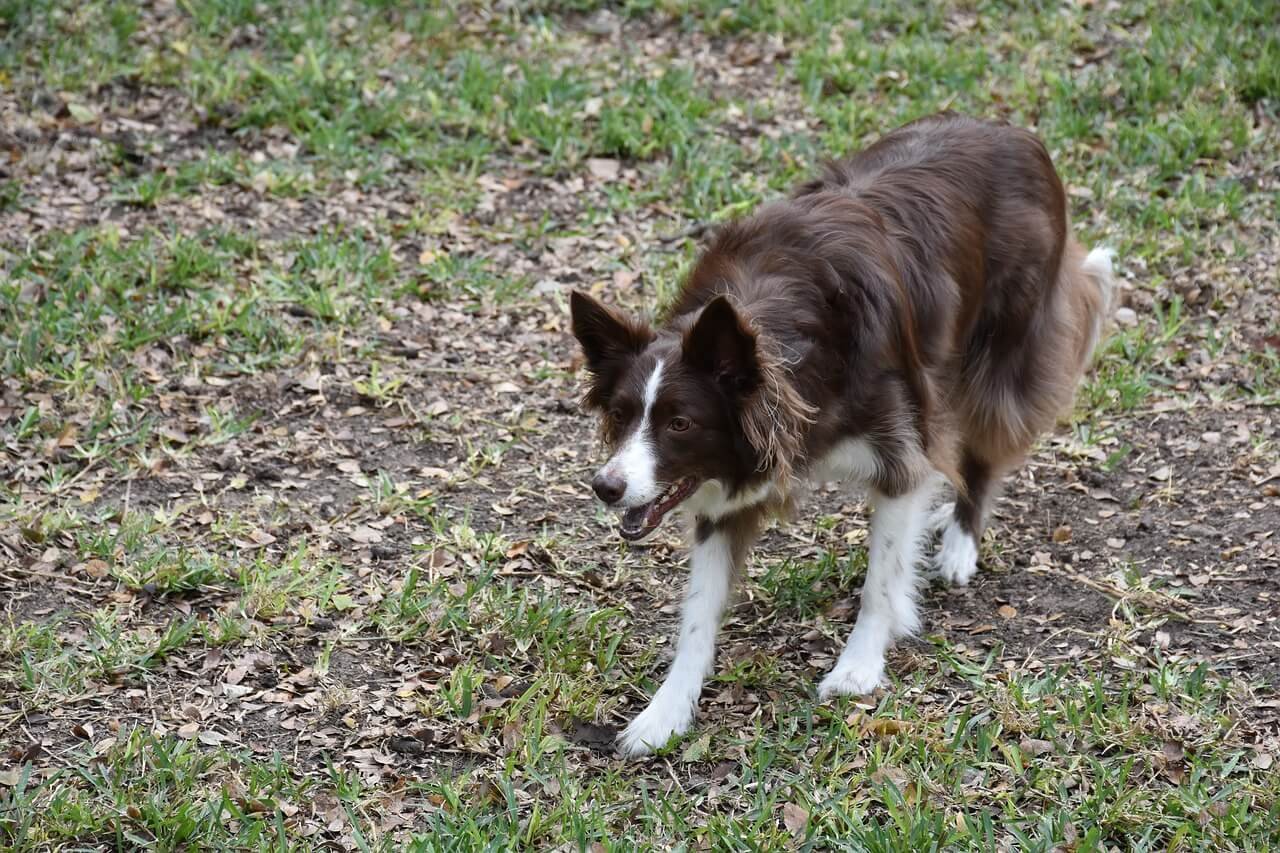Understanding Dog Oral Surgery: A Comprehensive Guide for Pet Owners
When it comes to our furry companions, their health and well-being are always top priorities. Yet, one area that often gets overlooked is oral health. Just like humans, dogs can experience a range of dental issues, from minor problems like plaque buildup to more serious conditions requiring surgical intervention.
Dog oral surgery might sound intimidating, but it’s a common and necessary procedure in many cases. Whether your dog is facing tooth extraction, tumor removal, or corrective jaw surgery, understanding the process can help you make informed decisions. In this blog post, we’ll explore everything you need to know about dog oral surgery, including its importance, what to expect, and how to care for your pet afterward.
Why Dog Oral Surgery Might Be Necessary
Dogs, much like humans, can develop a variety of dental and oral health issues. While regular brushing and check-ups can prevent many problems, some conditions require surgical intervention. Here are some common reasons why dog oral surgery might be recommended:
Severe Dental Disease: Advanced periodontal disease can lead to tooth decay, infections, and even bone loss. Surgery may be needed to remove affected teeth and clean deep pockets of infection.
Fractured Teeth: Dogs love to chew, but sometimes this habit can lead to broken teeth. If the damage is severe, extraction or root canal therapy might be required.
Oral Tumors: Growths in the mouth can be benign or malignant. Surgery is often the best option to remove these tumors and prevent further complications.
Jaw Fractures: Trauma from accidents or fights can result in broken jaws. Surgical repair ensures proper alignment and healing.
Congenital Defects: Some dogs are born with structural abnormalities, such as cleft palates. Corrective surgery can improve their quality of life significantly.
In conclusion, dog oral surgery addresses a wide range of conditions, ensuring your pet’s comfort and long-term health. Understanding these reasons can help you recognize when your dog might need professional intervention.
What to Expect During Dog Oral Surgery
If your veterinarian recommends oral surgery for your dog, you might feel overwhelmed. However, knowing what to expect can ease your concerns and prepare you for the process. Below is an overview of the typical steps involved:
Pre-Surgical Consultation: Your vet will perform a thorough examination and may request X-rays or blood tests to assess your dog’s overall health and identify specific issues.
Anesthesia Administration: To ensure your dog remains pain-free and still during the procedure, anesthesia is administered. Modern techniques make this process safe and effective.
Surgical Procedure: Depending on the issue, the surgery may involve tooth extraction, tumor removal, or reconstructive work. The duration varies based on complexity.
Post-Surgical Monitoring: After the surgery, your dog will be closely monitored as they wake up from anesthesia to ensure there are no complications.
Discharge Instructions: Once your dog is stable, you’ll receive detailed aftercare instructions, including medication schedules and dietary recommendations.
By understanding these steps, you can feel more confident about your dog’s journey through oral surgery. Remember, your veterinarian is there to guide you every step of the way.
Check this guide👉Dog Intestinal Blockage Surgery Costs: Best 7 Health Tips
Check this guide 👉The Cost of Dog Hip Replacement Surgery: Best 7 Health Tips!
Check this guide 👉Understanding Dog Knee Surgery: Best 7 Expert Tips!

Benefits of Dog Oral Surgery | Potential Risks of Dog Oral Surgery |
|---|---|
Pain relief for your dog | Anesthesia-related complications |
Prevention of further dental issues | Risk of infection post-surgery |
Improved overall health | Swelling or bleeding at the surgical site |
Enhanced ability to eat comfortably | Temporary dietary restrictions |
Increased lifespan in severe cases | Need for follow-up procedures |
How to Prepare Your Dog for Oral Surgery
Preparing your dog for oral surgery involves more than just showing up at the vet’s office. Taking proactive steps beforehand can ensure a smoother experience for both you and your pet. Here’s what you should do:
Schedule a Pre-Surgical Check-Up: Visit your vet for a comprehensive evaluation to confirm the necessity of surgery and discuss any concerns.
Follow Fasting Guidelines: Most vets recommend withholding food and water for several hours before surgery to reduce the risk of complications during anesthesia.
Gather Necessary Supplies: Stock up on soft foods, medications, and recovery essentials like a comfortable bed or crate.
Plan for Post-Surgery Care: Arrange time off work or enlist help to monitor your dog during the initial recovery phase.
Stay Calm and Reassuring: Dogs pick up on their owners’ emotions. Remaining calm can help reduce your pet’s anxiety.
Proper preparation not only benefits your dog but also gives you peace of mind throughout the process. Remember, teamwork between you and your vet is key to a successful outcome.
Post-Surgery Care Tips for Your Dog
After oral surgery, your dog will need special attention to recover fully and avoid complications. Here are some essential tips to ensure a smooth recovery:
Administer Medications as Directed: Follow your vet’s instructions carefully regarding pain relievers and antibiotics.
Monitor Eating Habits: Offer soft, easy-to-chew foods and observe whether your dog is eating normally. Report any refusal to eat to your vet immediately.
Limit Physical Activity: Restrict running, jumping, or playing for at least a week to allow proper healing.
Check the Surgical Site Regularly: Look for signs of swelling, bleeding, or discharge, which could indicate infection.
Attend Follow-Up Appointments: These visits are crucial for assessing your dog’s progress and addressing any lingering issues.
By following these guidelines, you can support your dog’s recovery and minimize the risk of setbacks. Always trust your instincts—if something seems off, contact your vet right away.
Signs Your Dog May Need Oral Surgery
Dogs can’t tell us when they’re experiencing dental pain, but their behavior and physical symptoms often provide clues. Recognizing these signs early can help you address potential issues before they worsen. Here are some indicators that your dog might need oral surgery:
Bad Breath: Persistent foul odor from your dog’s mouth could signal an infection or advanced dental disease.
Difficulty Eating: If your dog hesitates to eat, drops food, or chews on one side, it may indicate tooth pain or jaw issues.
Swollen Gums: Redness, inflammation, or bleeding gums are common signs of periodontal disease that may require surgical intervention.
Loose or Missing Teeth: This often points to severe dental decay or trauma that needs professional attention.
Lumps or Growths in the Mouth: Any unusual masses should be evaluated promptly, as they could be benign or cancerous.
By paying attention to these warning signs, you can seek timely veterinary care and potentially prevent more serious complications. Early intervention is key to ensuring your dog’s comfort and well-being.
Benefits of Addressing Dental Issues Early
Taking proactive steps to address your dog’s dental health can have far-reaching benefits beyond just avoiding surgery. Early treatment not only improves your dog’s quality of life but also saves you time and money in the long run. Here are some advantages of addressing dental issues early:
Prevents Pain and Discomfort: Treating dental problems early ensures your dog doesn’t suffer unnecessarily from chronic pain.
Reduces Risk of Systemic Health Issues: Poor oral health can lead to infections that affect the heart, kidneys, and other organs.
Minimizes the Need for Extensive Surgery: Catching issues early often means less invasive treatments and faster recovery times.
Improves Overall Behavior: Dogs with healthy mouths are happier, more energetic, and less irritable.
Saves Money on Future Treatments: Preventative care is typically more affordable than dealing with advanced dental disease or surgery.
Addressing dental issues proactively not only benefits your dog but also strengthens the bond you share. A healthy dog is a happy dog, and that starts with good oral hygiene.
Common Misconceptions About Dog Oral Surgery
Many pet owners hesitate to pursue oral surgery for their dogs due to misconceptions or fears. However, understanding the truth behind these myths can help you make informed decisions. Here are some common misconceptions about dog oral surgery:
“My Dog Is Too Old for Surgery”: Age alone isn’t a barrier; veterinarians assess overall health to determine candidacy for surgery.
“Oral Surgery Is Too Expensive”: While costs vary, many clinics offer payment plans, and the long-term benefits outweigh the expense.
“Dogs Don’t Need All Their Teeth”: Missing teeth can lead to misalignment, difficulty eating, and further dental problems.
“Anesthesia Is Dangerous”: Modern anesthesia is safe, and vets take precautions to minimize risks based on your dog’s health.
“Surgery Isn’t Necessary for Dental Issues”: Untreated dental problems can lead to severe infections and systemic health issues.
Dispelling these myths empowers you to prioritize your dog’s oral health without unnecessary worry. Always consult your veterinarian to get accurate information tailored to your pet’s needs.
Frequently Asked Questions About Dog Oral Surgery
Is dog oral surgery safe?
Yes, when performed by a qualified veterinarian using modern techniques, dog oral surgery is generally safe.
How long does it take for a dog to recover from oral surgery?
Recovery typically takes 1-2 weeks, though full healing may take longer depending on the procedure.
Will my dog experience pain after surgery?
Some discomfort is normal, but pain management medications prescribed by your vet will help keep your dog comfortable.
Can I brush my dog’s teeth after surgery?
You should wait until your vet gives the green light, usually after the initial healing period.
Are there alternatives to oral surgery for my dog?
In some cases, non-surgical treatments like antibiotics or dental cleanings may suffice, but surgery is often the most effective solution for severe issues.
Final Thoughts: Prioritizing Your Dog’s Oral Health
Dog oral surgery might seem daunting, but it plays a vital role in maintaining your pet’s overall health and happiness. By staying informed and working closely with your veterinarian, you can navigate the process with confidence. Remember, early detection and treatment of dental issues can prevent more serious problems down the line. Keep an eye on your dog’s oral health, schedule regular check-ups, and don’t hesitate to seek professional advice if you notice anything unusual. With proper care and attention, your furry friend can enjoy a lifetime of healthy smiles.
Dog Tapeworm Life Cycle: Best 7 Expert Tips! – Learn how tapeworms infect dogs, spot symptoms, and break the cycle with expert prevention strategies.
Anxious Cat Body Language: Best 7 Expert Tips! – Learn to spot signs of stress, understand triggers, and help your cat feel safe and relaxed.
Anxious Dog Body Language: Best 7 Expert Tips! – Learn to spot signs of anxiety, respond effectively, and help your dog feel safe and secure.
Is Breeding Dogs Bad? Best 7 Expert Tips! – Explore the ethics, benefits, and risks of dog breeding to make informed decisions for a better future.





